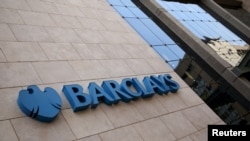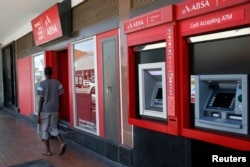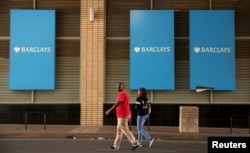Barclays Africa Group shares slid almost 7 percent Monday as speculation mounts that Barclays could be withdrawing or seriously downsizing from Africa.
On Sunday, its board was evaluating strategic options for its 62.3 percent, or $8.3 billion, stake in the business. Details about its plans are expected to be disclosed Tuesday, when Barclays reports full-year results.
The decision is part of a plan by Barclays' new CEO, Jes Staley, to refocus the bank on a narrower range of profitable businesses. Interestingly, Staley cited Africa as a growth area when he took the reins in Octobor 2015. In his full memo to staff, he said, "Our business in Africa gives us exciting opportunities in fast-growing economies."
Barclays Africa is based in South Africa and also operates in nine other countries. The business line contributed to 13 percent of Barclays' core for the first nine months of 2015. It is one of Africa's largest banks, employing 44,000 people in more than 1,260 branches.
As recently as 2005, Barclays bought Absa, South Africa's bank, after it was forced to pull out during the apartheid era. In 2013, Barclays merged its Africa operations with Absa. The goal was to allow expansion of pan-African corporate banking and bancassurance, a bank/insurance company partnership.
The bank spent nearly a century building the African business, making it one of the largest Western banks to operate on the continent. Other major players include Standard Chartered and Citibank.
High cost, high risk
Part of the issue with Africa is that the cost of running the unit remains high, and the venture is risky — especially with plunging currency across the continent as it battles with commodity, mineral and political instability.
The South African rand, for example, has lost more than a quarter of its value in the past six months. In addition, according to industry analytics firm Coalition, trading revenue in fixed income, currencies and commodities fell to multi-year lows at the world's largest banks, of which Barclays is one.
The larger question is: Has Barclays lost faith in Africa or the management in South Africa?
Whether pulling out of Africa is the right call is debatable, as the continent is a huge market with tremendous long-term prospects. On the other hand, leaving Africa could alleviate worries on the bank's capital and liquidity.
Africa is not the only region to see cuts.
Since Staley has been on board, Barclays has also cut back on its investment banking operations in Asia and has sold underperforming assets in Europe. The cuts seem to reinforce Staley's strategy of refocusing Barclays on the core British and American businesses.






